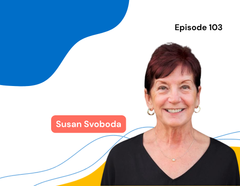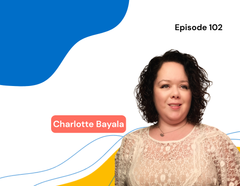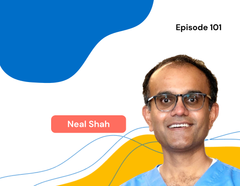Dr. Anita Srinivasan, a surgical oncologist, discusses her journey in oncology, the challenges faced in safety net hospitals, and the importance of patient-centered care in surgical oncology. The discussion covers the pain comparison between mammograms and cosmetic treatments, the impact of fear on surgical choices, and the significance of advanced care planning and patient education in making informed decisions about breast cancer treatment.
About Our Guest:
Surgeon, Health Executive, Healthcare Operational Excellence and Profitability Leader | 20+ years as a surgeon, health executive, thought leader, innovator, and advocate for health equity and access.
Resources & Links:
This episode was supported by the Patient Centered Outcomes Research Institute (PCORI) and features the PCORI research study here: https://www.google.com/url?q=https://pubmed.ncbi.nlm.nih.gov/32023526/&sa=D&source=editors&ust=1747789293210043&usg=AOvVaw0R5GjJN6VF7Zw15UDz_i3e ‘Randomized Trial of a Smartphone Mobile App to Improve Symptoms and Adherence to Oral Therapy for Cancer’
Chapter Codes
00:00 The Pain of Mammograms vs. Cosmetic Treatments
02:55 Dr. Anita Srinivasan's Journey in Oncology
05:51 Understanding Safety Net Hospitals
09:08 Challenges in Treating Advanced Breast Cancer
12:02 Surgical Oncology: Approaches and Techniques
15:08 The Importance of Patient-Centered Care
17:56 Advanced Care Planning in Surgical Oncology
21:07 The Role of Patient Education in Decision Making
24:01 The Impact of Fear on Surgical Choices
26:53 Future Directions in Surgical Oncology
Connect with Us:
Enjoyed this episode? Make sure to subscribe, rate, and review! Follow us on Instagram, Facebook, or Linkedin @mantacares and visit our website at mantacares.com for more episodes and updates.
Disclaimer:
All content and information provided in connection with Manta Cares is solely intended for informational and educational purposes only. This content and information is not intended to be a substitute for medical advice, diagnosis, or treatment. Always seek the advice of your physician or other qualified health provider with any questions you may have regarding a medical condition.
This episode was supported by an award from the Patient-Centered Outcomes Research Institute.




